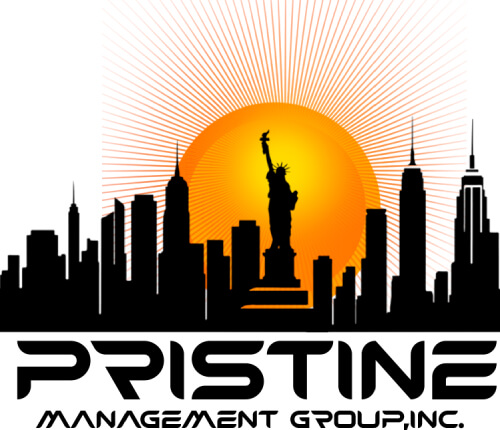Investing time in career development can transform your professional journey. In today’s changing work environment, many professionals find that growing their skills is not a one-off task but a continuous commitment that yields lasting rewards. Building a career takes effort and focus, and those who commit to learning new things and refining their abilities stand apart in their fields. However, many people overlook career advancement, assuming their current skills and experience are enough to sustain long-term success.
The reality is that industries are evolving, and staying in the same place can put your career at risk. This article examines how dedicating yourself to professional growth can boost your skills, strengthen your job security, and open new doors to opportunity. We discuss the value of building new skills, solidifying your role through continuous learning, and planning ahead so that every step you take contributes to a rewarding future.
The Importance of Career Development in a Competitive Job Market
Taking charge of your professional growth sets you apart from your peers in a work environment that is always changing. Industries experience shifts because of new technology and changing work practices. What worked a few years ago may not be as effective today. When you invest time in learning and updating your knowledge, you build a strong reputation that employers appreciate.
A commitment to developing your career prepares you to handle changes in your role, making you more adaptable when responsibilities shift. A strong focus on growth in marketing career, for instance, leads to improved job satisfaction and stability. Many marketing professionals find themselves feeling stuck in their careers because they have not actively pursued new knowledge or skills.
As you build your knowledge and abilities, you are better prepared to face challenges and meet new job requirements with confidence. This proactive approach not only positions you well for unexpected changes but also creates a sense of accomplishment that motivates you to keep progressing. Over time, this steady pursuit of growth pays dividends by opening doors to opportunities you might have never considered.
Improving Skills: The Foundation of Career Growth
Developing your abilities is the cornerstone of professional advancement. Gaining new technical knowledge and refining your communication skills creates a solid base for success. When you focus on learning, you sharpen your ability to perform in your current role while preparing yourself for future challenges. This constant effort to build your skill set leads to increased confidence and better performance in everyday tasks.
One of the biggest mistakes professionals make is assuming that their existing skills are enough. Every industry is evolving, and those who do not take the time to learn will find themselves falling behind. Technical skills, such as proficiency in software, data analysis, and industry-specific tools, are important, but soft skills are just as crucial. Leadership, adaptability, problem-solving, and emotional intelligence are all highly valued by employers and can determine how far you advance in your career.
Learning does not stop after formal education ends. Professionals at every stage set aside time for training sessions, online courses, and reading up on industry topics that keep their skills current. A commitment to self-improvement opens up fresh avenues for progress and makes your daily work more engaging. By building a habit of continuous learning, you create a strong foundation that supports both short-term accomplishments and long-term career goals.
Boosting Job Security Through Continuous Learning
Ongoing learning adds value to your career by making you a more reliable and versatile team member. Participating in courses and attending workshops helps you keep your expertise up to date. This approach enables you to meet new job requirements and take on extra responsibilities with confidence. The skills you acquire help protect you from becoming stagnant and prepare you for any changes that might come your way.
Many industries are seeing automation replace routine tasks. Jobs that once seemed secure are now at risk, making adaptability and skill-building more important than ever. When you stay ahead by continuously learning, you position yourself as an asset to any company. Employers value individuals who are willing to go the extra mile to improve their expertise. Expanding your knowledge also reduces the risk of being overlooked during times of organizational change.
When you develop a portfolio of varied skills, you become a trusted resource for tackling challenges that arise. Instead of being seen as someone whose role could be eliminated, you are viewed as someone who brings consistent value to the team. In this way, continuous learning not only secures your current position but also makes you a more attractive candidate for future opportunities.
Expanding Career Opportunities and Professional Growth
Investing in your career opens up a world of professional possibilities. As you build your skill set, you often find that new roles and increased responsibilities become within reach. This commitment to growth enriches your current position and paves the way for future advancements. Every new skill you learn expands your capacity to take on projects that can boost your career trajectory.
Building relationships with peers and mentors plays a significant part in your professional progress. Regular conversations with industry professionals provide insights into various career paths and offer practical advice. These connections serve as a support system, helping you gain valuable guidance while exposing you to opportunities that might have otherwise gone unnoticed. The network you create becomes a vital part of your journey toward career success.
Beyond networking, expanding your expertise can give you access to different roles within your industry or even allow you to transition to a completely new field. Career advancement is not just about climbing the corporate ladder but also about finding the right fit for your interests and skills. With more knowledge and experience, you will have the confidence to explore different paths and take advantage of exciting career opportunities.
The Role of Strategic Career Planning in Long-Term Success
Planning your career sets a clear direction for your professional journey. Setting specific career development goals and charting a course gives you a roadmap that makes your progress visible. A well-thought-out plan motivates you to keep working toward your ambitions while providing a sense of direction as you face everyday challenges.
Setting both short-term and long-term goals helps you stay focused on what matters most. Regular reviews of your plan keep you informed about your achievements and allow you to adjust your priorities when needed. A structured approach helps you identify areas that need improvement and ensures that you are always working toward a bigger purpose.
A well-crafted plan not only guides you in addressing obstacles but also prepares you to take advantage of opportunities when they arise. Whether it is pursuing additional certifications, expanding your network, or applying for leadership roles, having a career plan in place makes it easier to make informed decisions that align with your long-term success.
Overcoming Challenges in Career Advancement
Every journey encounters hurdles, and career growth is no exception. Professionals often face issues such as heavy workloads, limited time, and uncertainty about how to improve their skills. Recognizing these challenges is the first step toward overcoming them and setting realistic expectations for your professional journey.
Practical solutions involve organizing your schedule and reserving specific time for learning. Many individuals start by breaking down their larger goals into smaller, manageable steps. This method makes progress attainable even when time is scarce and helps maintain momentum. With determination and a focused plan, you can overcome obstacles and keep moving forward on your path to success.
Another challenge is the fear of change. Many people hesitate to step outside their comfort zone, but real growth happens when you embrace new challenges. Viewing obstacles as opportunities to learn and improve helps shift your mindset toward long-term progress.
Actionable Steps to Prioritize Career Advancement Today
Take an honest look at your current skills and interests to set clear career goals. Self-assessment can highlight areas that need improvement and reveal opportunities aligned with your ambitions. This reflection forms the basis of a focused and intentional plan for progress, allowing you to identify where you should concentrate your efforts.
Develop a routine that includes regular learning and networking activities. Participate in courses, join discussions with peers, and seek advice from trusted mentors who can offer guidance. Each small step builds your skill set and prepares you to face new challenges on your career journey. As you take these actionable steps, you gradually create a path that leads to ongoing professional growth and satisfaction.
A Better Career Starts with One Smart Move
Career advancement is not just about professional success. It is about building a future where you feel confident, prepared, and motivated to take on new challenges. When you commit to learning and strategic planning, you set yourself up for long-term stability and personal fulfillment.
At Pristine Management Group, we provide the tools, training, and mentorship needed to help professionals grow and succeed. Whether you are just starting your career or looking to take the next step, we offer real opportunities for development in a supportive and dynamic environment. Take charge of your future and explore the career paths waiting for you at Pristine Management Group today.


